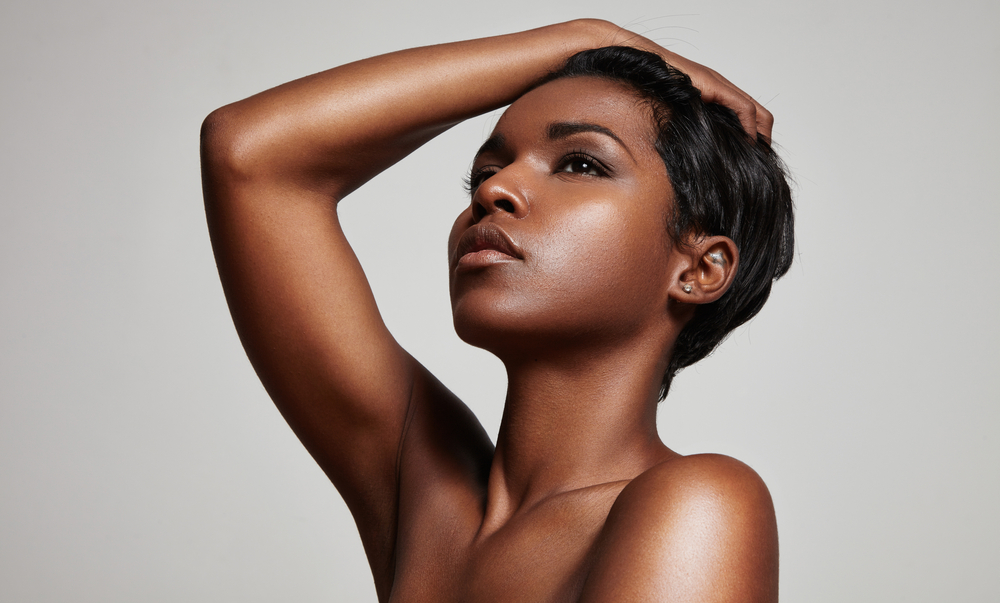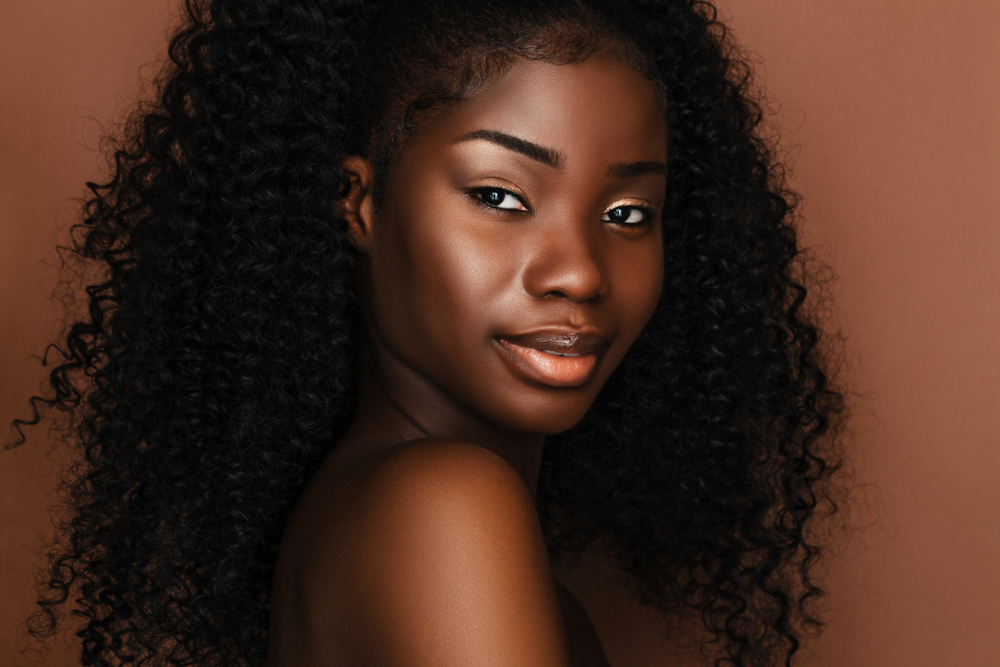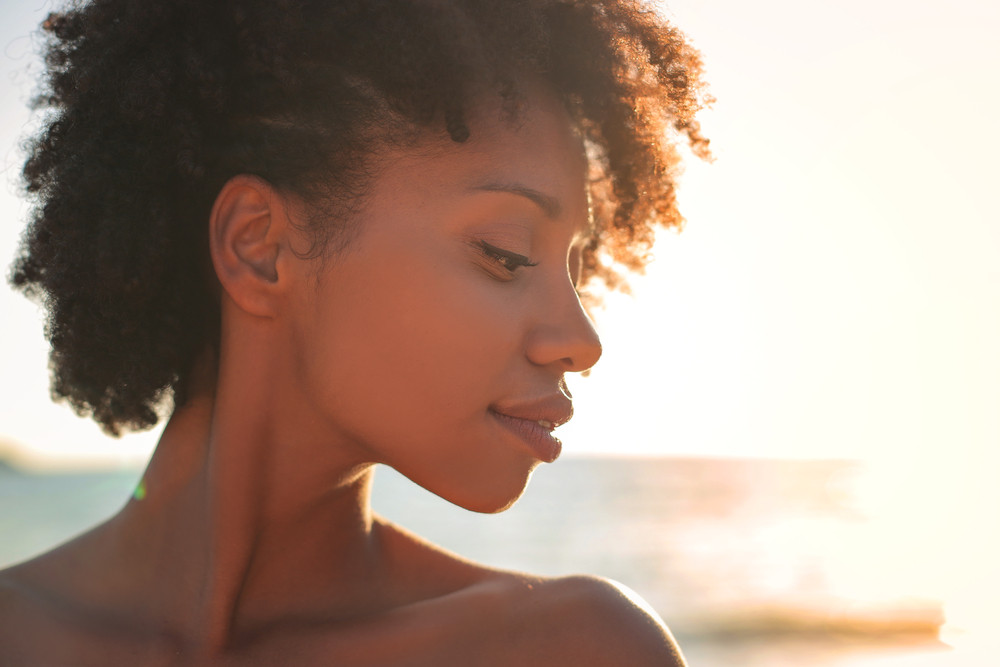The last couple of weeks have brought a larger, louder discussion to the table surrounding black lives in our country. At Blissoma, we are founded on providing the best possible experience to all members of our audience – new and existing customers, those who read our blog and social media posts, the many who receive our newsletter, and all whose lives we touch.
Out of deep concern and a desire to speak to the issue of inclusive beauty in as kind and authentic a way as possible, I asked my friends Latoya Thompson, owner of Heritage 1933, and Cammie Middleton-Helmsing, a customer of Blissoma, my most pressing questions surrounding the beauty industry and the viewpoint of a black woman on green beauty. Their answers were revealing and also surprisingly simple in some cases - so simple that it’s astonishing that it has taken this long to hear things that are so essential, and so routine in their lives.
Inclusive Beauty in the Green Beauty Industry: What’s Missing for People of Color?

Both Latoya and Cammie agreed that the lack of attention to black customers’ needs and the way they are marketed to is a large and overarching issue black women face in the beauty industry.
“Brands don’t know how to correctly approach the African American community, so brands are targeted to white women,” said Latoya, who was driven to seek out more natural ingredients because of her awareness of health issues that can be caused by some personal care products. “No one is really advocating for beauty for women of color.”
Both women said that this lack of appropriate marketing and products stems from more than just benign disinterest. It is an active lack of care based firmly in racism and an erasure of black people. I heard clearly that this exclusion is sending a message that white people do not want to have to see, hear from, or have to care about the needs of black people.
This news absolutely impacted me as a brand owner who has tried to make inroads to represent BIPOC in my marketing. Having heard their feedback I know now that I have not done a good enough job, because what is needed is an explicit and overt welcoming and concern for black people. Their safety and inclusion must be very deliberate. When that message is lacking, they simply cannot hope that their needs have been considered. Direct hostility can even result from taking a chance on shopping with a company that has not made it clear that they want to serve black customers.
The feedback I received indicated that there are often few or no product choices available for black customers when shopping in stores that are not explicitly curated to include the needs of black women. Darker skinned women may find that there are only one or two choices of color cosmetics in shades that actually work for them. For white people this kind of limited choice may be hard to imagine, as we are accustomed to retail bringing us numerous options for every aspect of our personal care routines - in fact the abundance of choices can sometimes be overwhelming! We may never even stop to think about what could be missing for our darker skinned friends, whether it’s a specific type of hair styling product or lipsticks in colors that look good on darker skin tones.
Due to the lack of care from the broader market, black people have historically stepped up to help one another. Entrepreneurs like Madam CJ Walker and Annie Malone built empires on hair products specifically for black women like themselves, in part because they understood the needs of the people they served. Home based businesses in hair styling and product creation are well-supported in the black community because these alternate avenues are some of the only places that needs can be appropriately met.
I heard from Cammie that performance is a primary concern and products must absolutely do the job they are meant to do. This means that buying green and natural products can sometimes represent a risk. We all feel the sting of disappointment when a product does not live up to expectations, but natural products may still carry a stigma of being too simplistic to perform well. Those of us in the industry may know that green beauty brands have made great strides in sophistication and performance, but many customers may not know that yet if no one has been bothering to purposefully reach out to them.
From her personal experience, Cammie sees her social circle spending their money where it counts. If they have a limited budget, they need the products they purchase to last and perform so they are worth the money spent. “Cost is a huge concern,” Cammie said. “But marketing can absolutely overcome the cost concern.”
Green beauty has tended to have a reputation of having higher prices due to all the various factors that go into ingredient quality, selection, and specialized production. These are all well-meaning things, but they can have the effect of cutting some people out of access to healthy products.
It’s important to be mindful of how wealth is distributed in the USA when thinking about price. In 2016 the average white family had a net worth of 10x the net worth of the average black family.
Black customers absolutely have money to spend on products that appeal to them, but their priorities may differ from white shoppers. Both Cammie and Latoya highlighted that haircare is a top spending priority for black women with makeup coming in second. Skincare is seen as being less important, and may be less of a budget priority.
More Barriers to Green Beauty for Black People
Using healthy products to avoid toxins is a whole additional and complex aspect to how black shoppers may interact with the green beauty space.
Latoya says her clients often already have an interest in a healthy green lifestyle, and come to her ready to embrace personal care that is focused on health. When starting her brand she had also done her own research and concluded that safe, natural ingredients were a priority to her because of the potential risks of more conventional products.
Black women tend to experience higher rates of endocrine system cancers that may be linked to hormone disrupting chemicals in personal care products, so this issue is exceptionally important. Hair styling and straightening products, used heavily on black hair, are some of the major potential contributors to this phenomenon.
It also helps to have someone in the family who was more naturally inclined already. Cammie’s mother and grandmother had industry knowledge which led her to more natural concoctions for herself. But she also notes that, “It’s a luxury to have eco-friendly thoughts.”
Unfortunately, the biggest barrier to BIPOC customers’ participation in the green beauty space is that green beauty itself has racism attached to it. Holistic and natural ways have become branded as part of a white, high end lifestyle, whether intentionally or not. For some companies it may be an error of omission, but as an entire industry we have been sending the wrong message. I am all too aware of how much work it has been to get anyone of any background to understand the importance of healthy personal care over the last 20 years. But in its growth, our industry has created a problem for itself.
The pervasive whiteness and exclusivity is a huge obstacle for BIPOC to engage with the space. The high price point, the venues where green beauty is sold in majority white neighborhoods, the overwhelming use of white people in images, and lack of messaging to black customers all create an overarching impression that green and natural beauty products are meant for white people.
It was seeing this inclination towards the conscious or unconscious “branding” of a green lifestyle as being an elite, white lifestyle that brought me to make these inquiries in the first place. Over the last decade of my time in the green beauty industry, I have been aware that the spaces I have occupied for work have been almost exclusively white. The discussion forums, the retail spaces, and the events are glaringly white if you have the mindset to see it.
After living in a majority black neighborhood for over a decade, I now feel somewhat unnerved when I am immersed in spaces that are conspicuously free of darker skin. It’s easy for many to miss when they are accustomed to life being so heavily caucasian. The average white person has over 90% white friends, after all. I was absolutely one of those people until I made a very deliberate choice to live where I was the minority.
As a person that is passionate about sharing health and making it more accessible, it has troubled me deeply to see such segregation in our industry. I have sometimes felt like I have been failing as an activist entrepreneur to better reach an audience that, from my perspective, was greatly in need of a sustainable, clean product.
I have struggled for years with the idea of how to address this, but did not know how. It was during the conversations of this last week that I began to feel like I was finally seeing a major missing puzzle piece that had previously eluded me.
Basic Needs are Not Being Met by Green Beauty Brands
Maslow’s hierarchy of needs is a theory developed by Abraham Maslow outlining the five basic categories of needs, beginning with the fundamentals like food and water and ranging to fulfilling desires. In this theory, higher needs emerge once a person feels they’ve satisfied the previous need.
After the first physiological needs in the hierarchy, those required to keep someone alive, is the second set of needs known as Safety needs. These encompass feeling secure, healthy, safe, and having the resources available to feel this way. Safety is incredibly important to how the brain works as well, as a calm mind and safe environment promote a brain state that is more resourceful and focused.
If someone doesn’t feel safe in their society on a daily basis, they don’t have as much of the mental and emotional energy “budget” to devote to concerns beyond basic safety. This means that worrying over longer term health issues potentially caused by using unsafe products may be too taxing to the emotional and mental energies of many black people.
Instead, energy is spent on preserving life in a more immediate sense. Some people may switch to green beauty for “safety”, but our black friends and community members are dealing with a whole other level of safety concerns.
People with chronic illnesses discuss this type of energy budget as “spoons”. Some days we run out of spoons and don’t have any more to give for additional activities. Micro-aggressions and consistent stress would absolutely use up spoons.
The United States is not at all a safe country in which to be black, as evidenced by the devastatingly routine, brutal murders of black people by police. A routine traffic stop can result in a black person being taken to jail and never returning (Sandra Bland) or being shot on site in front of loved ones (Philando Castile). George Floyd’s life was ended over a suspected bad check, and Trayvon Martin’s over wearing a hoodie and walking home with a bag of candy. Time and again we see miscarriages of justice, excessive use of force, and black lives traumatized by police and average citizens. Threatening situations abound at every turn.
The immediate and pressing concern of surviving daily life would take mental and emotional precedent over more subtle and long term safety concerns like chemical buildup in the body. When you might not return from a trip to the store, what you purchase at the store becomes of far less consequence than everything else that happens on the way.
I was also told that there is energy put into appearance, even just as a defensive strategy in and of itself. Just to go to the grocery store freely without attracting unwanted attention can require looking put together, which takes time and effort. Keeping up appearances can have different implications for a black person. We all want to feel good and attract an occasional admiring glance, but I had not previously considered a cosmetic routine to be like a type of deflective armor. Now that it has been brought up, it makes perfect sense to me.
As any green beauty lover knows, it takes a great deal of time, research, and concern placed into vetting ingredients, researching brands, and reading labels to make a switch to products that hopefully will be healthier. One key piece that I and other white people have been missing is that many black people may simply not have the energy available to be able to spend on this work and it may seem far less important in the grand scheme of things. Our detailed debates over the right preservative choice likely seem inconsequential when compared to a looming threat to life and breath. I believe our black friends would most like us to work to end systemic racism as a first and top priority. Once that threat is dealt with, we would have lots more time and energy to talk about preservatives together.
How to Move Forward Compassionately and Effectively

Now is the time that green beauty brands must speak up and take action to include BIPOC in this space. All our work will be worth little if the thriving market we have built does not serve the black population. Health is not something only wealthy white people should have. It is absolutely something that every human being deserves.
And more than just broadening our beauty businesses, we must be engaged in our communities to generate a safe society for people of all skin colors. Our black friends and neighbors will continue to encounter threats to their wellbeing from sources other than just beauty products. If we care at all about them, we must push for policies and protections that will ensure their overall safety or our statements about health and wellbeing are just lip service. Healthy inclusive beauty begins with staying alive, free, and unharmed.
Green beauty brands can absolutely be a part of creating healing on an everyday basis, though, and we can do it while we work on sweeping government reforms.
The basic needs of black beauty customers are not being met. Working to understand those needs and serve them well is one step in fixing this huge void in the industry. The reality is that this is just good marketing and good business.
Latoya and Cammie’s feedback to me conveyed that even if a beauty brand founder is white, genuine attention toward catering to black customers is something those customers would deeply appreciate. Authentic thoughtfulness and conveying the message that their company truly cares about the black community and communicating this message loudly and proudly to their audience would go a long way toward feelings of inclusivity and diversity.
Other areas green beauty brands can show their support is by buying from black suppliers, donating to causes that build and support the black community, hosting events that show direct support for people of color, using images on their websites, blogs, social media, and advertising featuring people of color, and researching and creating products that cater to skin issues of black people. The effort must be authentic, sustained, and thorough to ring true. All of the above speak to black customers.
Green beauty retailers like Integrity Botanicals are already doing the work behind the scenes to address these issues by donating to the NAACP, beginning to review BIPOC owned brands for addition to their range of options, expanding representation and diversity in their marketing efforts, and seeking more black influencers to work with. When they heard the voice of their community, they responded.
Changes may not happen overnight, but already there is movement. When we know how we’ve been missing the mark, we can correct it. And I believe many green beauty companies very much want to.
As Latoya put it, say something and take action. “You have to be willing to lose your job, willing to lose relationships,” she said. “It’s leadership and it takes courage.” The beauty brand sets the tone for what products they want to make and the message they want to convey. If you care about your black customers, it's time to actively and consciously show it.
The bottom line, we need to actively embrace people of color in the green beauty world, show them that they are safe and welcome here, and that their needs are known within our industry. We need to show that black lives matter to us.
Deliberate care needs to be expressed in order to correct the active erasure and injury that has occurred for so long. That care will be sensed and welcomed when it's genuine.
I am hopeful that my industry can heal our racial divide. I know that helping people feel cared about has generally been something Blissoma does well, and so I do think we can accomplish this for our black customers. We will be better for doing the work that is ahead. We welcome further feedback from our black customers as to how we can better address your needs and create skincare that will be ideal for you.
You can shop Latoya’s products on her website Heritage1933.com.


